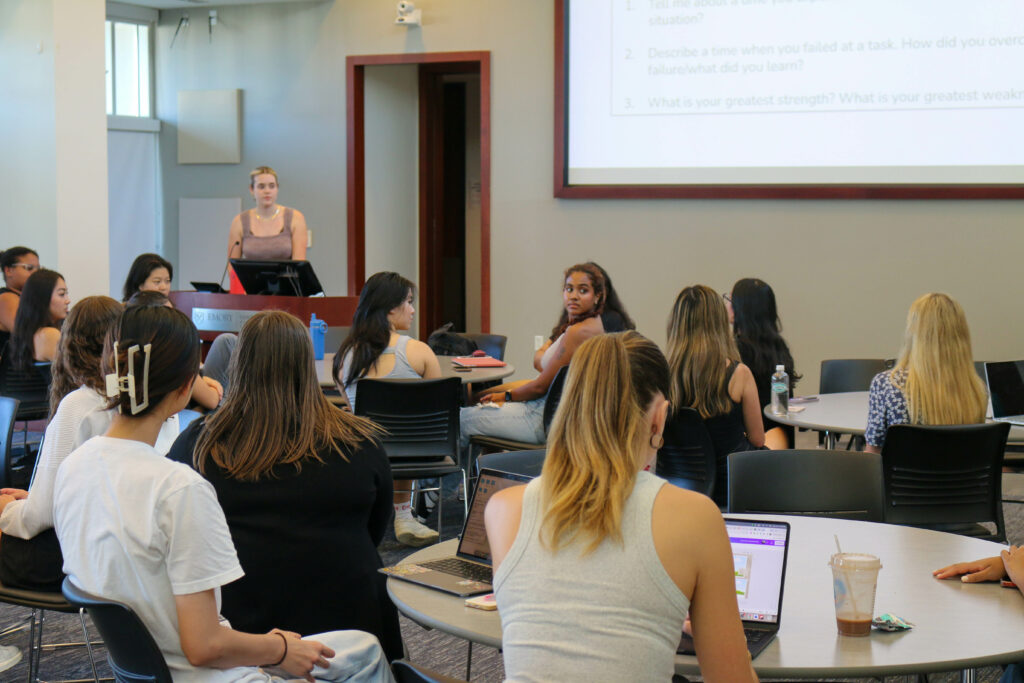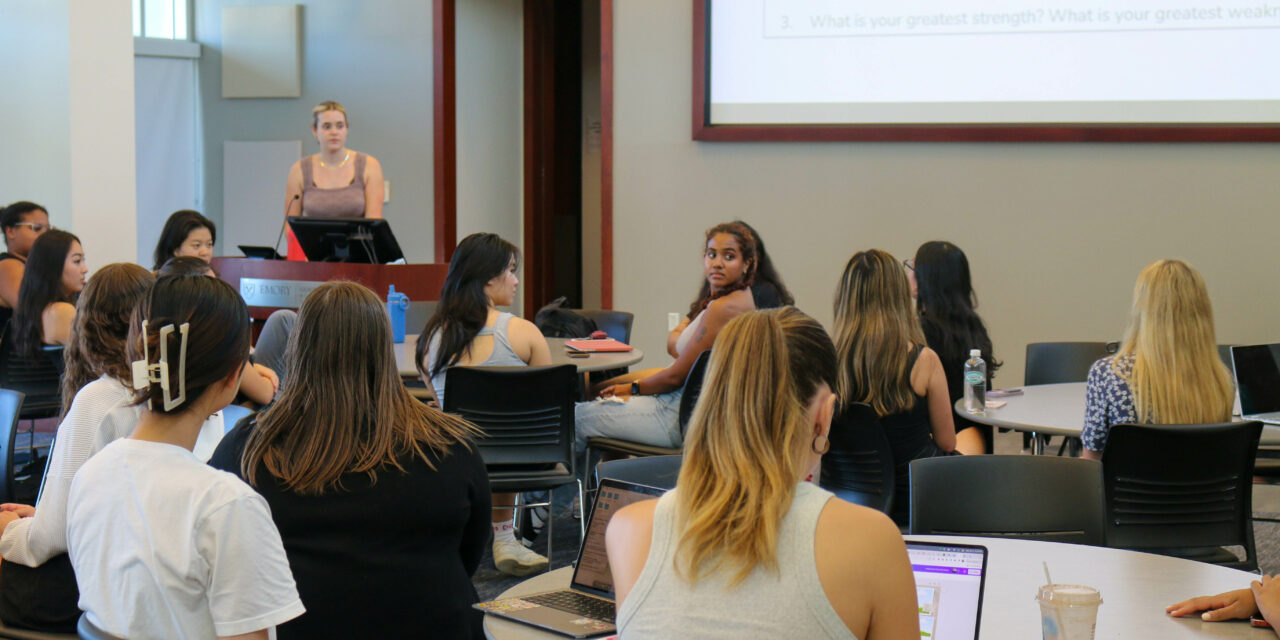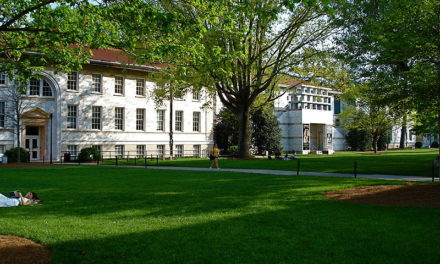Goizueta Business School recently implemented a new policy that requires clubs to accept all interested students as general body members starting this semester. This policy primarily affects first-year students and those not enrolled in the business school.
Additionally, first-year students cannot initially apply to hold executive board positions under the new policy. Instead, these students now must join clubs as general body members before they can undergo any training or promotional process.
Along with the policy, the University also established the new Goizueta Pre-BBA Association, which is dedicated to introducing first-year students to bachelor of business administration (BBA) opportunities and clubs, this semester, according to Goizueta Senior Associate Dean of Undergraduate Education Andrea Hershatter.
“Then clubs that aren’t ready to onboard all freshmen can use that entity as a vehicle for communication, for programming, for outreach, for all of the things they might want freshmen involved in,” Hershatter said.
The change aims to foster inclusion among business school clubs, Hershatter said. She explained that the new policy will attempt to alleviate concerns from last year’s recruitment process, when an “extraordinary number” of first–year students applied to — and were rejected from — as many as 15 clubs.
Barring first–year students from holding executive positions will allow them to learn more about business clubs before taking on high-commitment roles, Hershatter added.
This policy has been in the works since 2018 when students created the BBA creed, which highlights diversity and community, as well as valuing every member of the BBA community. Two years later, Goizueta implemented a policy that BBA students had access to all clubs in the business school, which is now being extended to all students.

Students attend an Emory Women in Business professional development workshop on Oct. 2. (Jack Rutherford/Staff Photographer)
“There’s this idea of one Emory and the sense that all resources of the University should be available to all students,” Hershatter said.
The change sparked mixed emotions among students. Goizueta Investment Management Group (GIMG) Vice President Sean Walsh (26C) expressed his disagreement with the new policy.
“We are managing $350,000 of Emory’s endowment,” Walsh said. “Not having our absolute top students investing for us with the most experience and research in the field just seems silly to me.”
However, Cate Navarrete (26B), who is a team lead for 180 Degrees Consulting and programming chair for Emory Women In Business, said the new policy makes joining clubs more equitable. She explained that the process of getting into one consulting group was “incredibly lengthy.” Navarrete was denied from several groups, sometimes never receiving an interview even after applying multiple times.
“It’s a very difficult process, especially when you come to a school as competitive as Emory and then there’s this other layer of competitiveness in terms of just getting involved,” Navarette said.
However, this competition for involvement is not unique to Emory University. Hershatter noted that the increase in exclusivity for business school clubs is a nationwide trend.
“This is really bad for how students feel about Emory,” Hershatter said. “It is not who we want it to be as a business school.”
However, Walsh added that while the policy seeks to reduce the competitive nature of clubs, he believes that the rigor is good preparation for the job recruitment process after graduation.
“It gives you a good taste of how the actual job market will be,” Walsh said. “It’s going to be tough.”
Navarrete added that the policy has required a lot of work from the executive members of clubs, like 180 Degrees, as they have to create resources for new members who may not be as dedicated if they do not go through a recruitment process.
“You have to weigh the pros and cons a little bit,” Navarette said. “We’re creating these resources and these programs and expending a lot of energy and resources to do so, and we don’t necessarily know if people are going to put their all into these programs.”
Both Walsh and Navarette added that blocking first-year students from joining certain groups could also be detrimental. Navarette said joining her club and getting involved with Goizueta before entering the school was an “invaluable experience.”
“I find it really unfortunate that freshmen can’t get involved with business clubs,” Navarette said. “Joining it was probably the most pivotal experience of my freshman year.”
BBA Council President Michael Chan (22Ox, 24B) and Vice President Liam O’Sullivan (24B) acknowledged the mixed opinions on the new policy for first-year students.
“As it relates to the promotional policy, in particular, we’ve heard mixed feedback from students: it could affect club resources, it could affect the club culture negatively and also is the policy being implemented effectively,” Chan said.
O’Sullivan explained that the BBA Council is dedicated to serving students’ “best interest.” Chan added that the council is open to hearing the opinions of students and plans to get feedback throughout the year. The BBA Council plans to make decisions based on the student input.
“There’s a handful of students at least who kind of feel adversity to the policy,” O’Sullivan said. “Having those conversations is important.”
Amelia Dasari (she/her) (26C) is from Sharon, Massachusetts, majoring in neuroscience and behavioral biology on the pre-medical track. Outside of the Wheel, Dasari is involved with undergraduate research, Best Buddies, EUMR, RHA, and rez-life. In her free time she enjoys playing the violin, exploring coffee shops, and reading mysteries (especially Agatha Christie).






